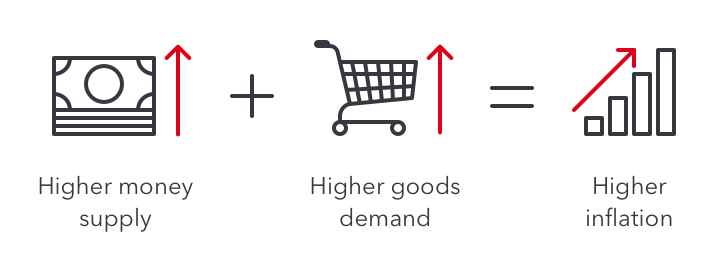Annuities Vs Bonds | A Comparison. Investing can be a tricky business. With so many different options, it’s hard to know what the best choice is for your particular situation. Annuities and bonds are two popular investment vehicles, but they have very different characteristics. Annuities Vs Bonds | A Comparison
In this article, we’ll take an in-depth look at annuities vs bonds to help you decide which might be right for you. Annuities are long-term investments that provide payments over time from the principal invested and any accrued interest or earnings. Bonds are debt instruments issued by governments and companies that pay fixed rate income on predetermined dates.
Each of these investments has advantages and disadvantages depending on your financial goals and timeline. Let’s dive into some of the key details about each option! Annuities Vs Bonds | A Comparison
Overview Of Annuities
When it comes to investing, annuities and bonds are two of the most popular options. It’s like comparing apples to oranges: each has its own unique benefits that can help you reach your financial goals. Annuities Vs Bonds | A Comparison
As a savvy investor, it’s important to understand the differences between these two so you can decide which one is right for you. Annuities Vs Bonds | A Comparison
Let’s start by taking a look at annuities. Like many investments, they come in different forms; from deferred income annuities that provide periodic payments after retirement, to immediate annuities that offer guaranteed lifetime income or lump sum payments once purchased. There are even indexed annuities that provide protection against market risk while allowing potential growth—a great way to secure your future without worrying about daily fluctuations in the stock market.
All these types of annuity have their advantages and disadvantages – but whatever form of annuity you choose, proper research and planning must be done before deciding on an investment option. Annuities Vs Bonds | A Comparison
Overview Of Bonds
An annuity is essentially a financial product that provides regular payments over time. It’s usually set up as an investment by a company or individual, with the money going back to them in scheduled intervals. Annuities Vs Bonds | A Comparison
On the other hand, bonds are debt instruments issued by governments and companies which allow investors to loan their money for a certain period of time at an agreed-upon interest rate. Bonds generally offer higher returns than savings accounts but they also carry more risk than annuities since there’s no guarantee that your principal will be repaid if the issuer defaults on its obligations. Annuities Vs Bonds | A Comparison
Bonds come in many different varieties such as corporate bonds, treasury bonds, municipal bonds, and zero coupon bonds. Corporate bonds are typically backed by some form of collateral while most government-issued securities don’t require any kind of backing. Municipal bonds often provide tax advantages for those who live within the issuing municipality, while zero coupon bonds provide a return based solely on the difference between the purchase price and face value upon maturity. Annuities Vs Bonds | A Comparison
Generally speaking, investing in these types of securities comes with greater risks than investing in annuities but can also lead to greater rewards depending on market conditions and investor goals. Annuities Vs Bonds | A Comparison
Annuities Vs Bonds | A Comparison

Advantages Of Annuities
I’m really interested in learning more about the advantages of annuities, particularly when compared to bonds.
Specifically, I’m curious about the tax benefits and the guaranteed income that annuities can provide.
Tax Benefits
When it comes to tax benefits, annuities have a huge advantage over bonds.
For starters, you don’t pay taxes on your contributions when they go in; instead, you only have to pay taxes when the money is withdrawn. Annuities Vs Bonds | A Comparison
Plus, since annuities are considered long-term investments and often used for retirement planning, the gains usually sit in an account longer than with most other investment options—which can mean more favorable tax treatment.
So if you’re looking for a way to save on taxes while investing for the future, annuities should definitely be considered!
Guaranteed Income
Another great advantage of annuities is the fact that they provide a guaranteed income. This ensures that you won’t have to worry about outliving your savings or running out of money in retirement, as long as the payment intervals are structured correctly. Annuities Vs Bonds | A Comparison
Annuity payments also remain consistent throughout the life of the contract; so even if there are market downturns and fluctuations, you can still rest assured knowing that you will receive regular payments. Annuities Vs Bonds | A Comparison
Furthermore, most annuity contracts come with inflation protection which helps maintain your purchasing power over time. Annuities Vs Bonds | A Comparison
All these factors combine to make it an attractive option for those looking to secure their financial future. Annuities Vs Bonds | A Comparison
Advantages Of Bonds
When it comes to investing, annuities and bonds have both been popular choices. But there are advantages and disadvantages to each option that potential investors should consider before making a decision. Annuities Vs Bonds | A Comparison
Surprisingly, according to research from the Investment Company Institute, nearly half of all households in America own at least one type of bond investment!
Now let’s take a look at some of the advantages of investing in bonds.
One major advantage of investing in bonds is their relative safety compared to other types of investments available on the market today. Bond prices don’t fluctuate as much as stocks do because they are debt instruments backed by the issuing company or government entity rather than an equity instrument. This means that when you invest in a bond, you know how much interest income you will receive over time without any surprises due to changes in stock values. Additionally, with many bonds having long maturity dates, this makes them attractive for longer-term investments which provide investors with greater stability and predictability within their portfolios.
Another benefit associated with bonds is that they can offer tax benefits depending upon where they are purchased and held. Interest earned on most municipal bonds is free from federal taxes while certain state or local taxes may still apply; income derived from corporate bonds may be subject to both federal and state taxes however these rates tend to be lower than what would be paid if invested into dividend paying stocks instead. Lastly, capital gains realized upon selling appreciated bonds is taxed at a more favorable rate than those made off other assets such as stocks or real estate properties.
Annuities Vs Bonds | A Comparison
Disadvantages Of Annuities And Bonds
When it comes to savings, annuities and bonds are two of the most popular options. But there are certainly some drawbacks to both that you should consider.
For one, with an annuity, your money is locked in for a set period of time and you could face penalties if you try to withdraw before then. Also, you’re subject to fees with any type of annuity and they can be expensive.
With a bond, on the other hand, your return rate may not be as high as investing in stocks or real estate; plus, when interest rates rise, the value of fixed-rate bonds drops significantly.
So while these products can be great ways to save money over the long term, make sure to weigh all the pros and cons carefully before making any decisions.

Frequently Asked Questions
What Is The Average Rate Of Return On Annuities And Bonds?
I’m not sure why I have to compare annuities and bonds, but what the heck! We’re all trying to get a good rate of return on our investments, right?
So let’s try to figure out what is the average rate of return on these two options. On one hand we have annuities that generally offer steady returns over long periods of time, while on the other hand there are bonds which often provide higher yields but with greater risks involved.
It can be tricky to assess which option provides more value, as it really depends on individual preferences and goals. But taking into account both factors – risk and reward – it seems that overall, annuities tend to yield slightly lower rates than bonds.
How Do Annuities And Bonds Compare In Terms Of Liquidity?
When it comes to liquidity, annuities and bonds have some key differences.
Annuities are typically illiquid investments, meaning you can’t access your money right away.
Bonds, on the other hand, offer more liquidity because they can be sold for cash quickly and easily.
So if you’re looking for a way to invest that allows instant access to your funds when needed, then bonds may be the better option.
What Are The Tax Implications Of Investing In Annuities And Bonds?
Investing in annuities and bonds can be a great way to secure your financial future, but understanding the tax implications is essential.
Annuities are typically taxed as ordinary income when you receive payments from them while bond interest is usually taxable at the federal level according to the applicable rate for your filing status.
Additionally, some states may also impose taxes on certain types of bonds depending on where they are issued.
Before investing, it’s smart to research what kind of tax burden you could face so that you can make an informed decision about how best to invest your money.
How Do Annuities And Bonds Fit Into A Retirement Portfolio?
When it comes to retirement planning, annuities and bonds are two of the most popular options. Both offer a steady stream of income during retirement, but with different features that make them attractive for different reasons.
Annuities provide guaranteed payments over a set period of time, while bonds typically generate lower returns than other investments. It’s important to consider how these two fit into your overall portfolio so you can maximize their potential and plan for a secure financial future.
Are There Any Risks Associated With Investing In Annuities And Bonds?
Investing in annuities and bonds can be a great way to supplement your retirement portfolio, but there are some risks involved.
Annuities come with surrender fees if you want to withdraw the money early, as well as other costs that could reduce your returns.
Bonds have credit risk, which means if the issuer defaults on their debt obligations then you may not get all of your money back.
It’s important to understand these potential risks before investing in either product.
Annuities Vs Bonds | A Comparison

Conclusion
Investing in annuities and bonds both have their advantages. Depending on your goals, one might be a better option than the other.
For example, if you are looking for more liquidity, then bonds may be the best choice as they can provide quick access to money if needed.
On average, the rate of return for investors with annuities is 7%, while for those who invest in bonds it is 3%. That’s almost 4% difference which could make a big impact over time.
No matter what investment strategy you decide to pursue, always consider all aspects carefully before making any financial decisions.














Leave a Reply